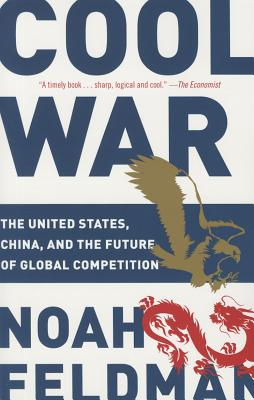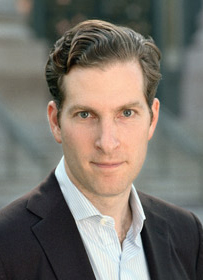

 Random House Trade
Random House Trade
Cool War: The United States, China, and the Future of Global Competition


Key Metrics
- Noah Feldman
- Random House Trade
- Paperback
- 9780812982558
- 8 X 5.2 X 0.7 inches
- 0.4 pounds
- Political Science > International Relations - Diplomacy
- English
 Secure Transaction
Secure TransactionBook Description
The Cold War seemingly ended in a decisive victory for the West. But now, Noah Feldman argues, we are entering an era of renewed global struggle: the era of Cool War. Just as the Cold War matched the planet's reigning superpowers in a contest for geopolitical supremacy, so this new age will pit the United States against a rising China in a contest for dominance, alliances, and resources. Already visible in Asia, the conflict will extend to the Middle East (U.S.-backed Israel versus Chinese-backed Iran), Africa, and beyond.
Yet this Cool War differs fundamentally from the zero-sum showdowns of the past: The world's major power and its leading challenger are economically interdependent to an unprecedented degree. Exports to the U.S. account for nearly a quarter of Chinese trade, while the Chinese government holds 8 percent of America's outstanding debt. This positive-sum interdependence has profound implications for nations, corporations, and international institutions. It makes what looked to be a classic contest between two great powers into something much more complex, contradictory, and badly in need of the shrewd and carefully reasoned analysis that Feldman provides.
To understand the looming competition with China, we must understand the incentives that drive Chinese policy. Feldman offers an arresting take on that country's secretive hierarchy, proposing that the hereditary princelings who reap the benefits of the complicated Chinese political system are actually in partnership with the meritocrats who keep the system full of fresh talent and the reformers who are trying to root out corruption and foster government accountability. He provides a clear-eyed analysis of the years ahead, showing how China's rise presents opportunities as well as risks. Robust competition could make the U.S. leaner, smarter, and more pragmatic, and could drive China to greater respect for human rights. Alternatively, disputes over trade, territory, or human rights could jeopardize the global economic equilibrium--or provoke a catastrophic hot war that neither country wants.
The U.S. and China may be divided by political culture and belief, but they are also bound together by mutual self-interest. Cool War makes the case for competitive cooperation as the only way forward that can preserve the peace and make winners out of both sides.
Praise for Cool War
A timely book . . . sharp, logical and cool.--The Economist
Noah Feldman's dissection of the United States-China relationship is smart, balanced, and wise.--Robert D. Kaplan, New York Times bestselling author of The Revenge of Geography
Compelling . . . Feldman's book carries enough insight to warrant serious attention from anyone interested in what may well be the defining relationship in global affairs for decades to come.--Kirkus Reviews
A worthwhile and intriguing read.--The Washington Post
Masterfully elucidates China's non-democratic/non-communist new form of government.--Publishers Weekly
Author Bio
Noah Feldman specializes in constitutional studies, with a particular emphasis on the relationship between law and religion, free speech, constitutional design, and the history of legal theory.
Felix Frankfurter Professor of Law at Harvard Law School, he is also the Chairman of the Society of Fellows at Harvard. In 2003 he served as senior constitutional advisor to the Coalition Provisional Authority in Iraq, and subsequently advised members of the Iraqi Governing Council on the drafting of the Transitional Administrative Law or interim constitution.
He received his A.B. summa cum laude in Near Eastern Languages and Civilizations from Harvard University in 1992. Selected as a Rhodes Scholar, he earned a D.Phil. in Oriental Studies from Oxford University in 1994. From 1999 to 2002, he was a Junior Fellow of the Society of Fellows at Harvard. Before that he served as a law clerk to Justice David H. Souter of the U.S. Supreme Court (1998 to 1999) and to Chief Judge Harry T. Edwards of the U.S. Court of Appeals for the D.C. Circuit (1997 to 1998).
He received his J.D. from Yale Law School in 1997, serving as Book Reviews Editor of the Yale Law Journal. He’s the author of nine books: Arab Winter: A Tragedy (Princeton University Press, 2020), The Three Lives of James Madison: Genius, Partisan, President (Random House, 2017); Cool War: The Future of Global Competition (Random House, 2013); Scorpions: The Battles and Triumphs of FDR’s Great Supreme Court Justices (Twelve Publishing, 2010); The Fall and Rise of the Islamic State (Princeton University Press, 2008); Divided By God: America's Church-State Problem and What We Should Do About It (Farrar, Straus & Giroux 2005); What We Owe Iraq: War and the Ethics of Nation building (Princeton University Press 2004); and After Jihad: America and the Struggle for Islamic Democracy (Farrar, Straus & Giroux 2003).
He’s also the author of two textbooks with Kathleen Sullivan: Constitutional Law, Twentieth Edition (Foundation Press, Fall 2019) and First Amendment, Seventh Edition (Foundation Press, 2019).
Source: Harvard Law School
Videos




Community reviews
Write a ReviewNo Community reviews